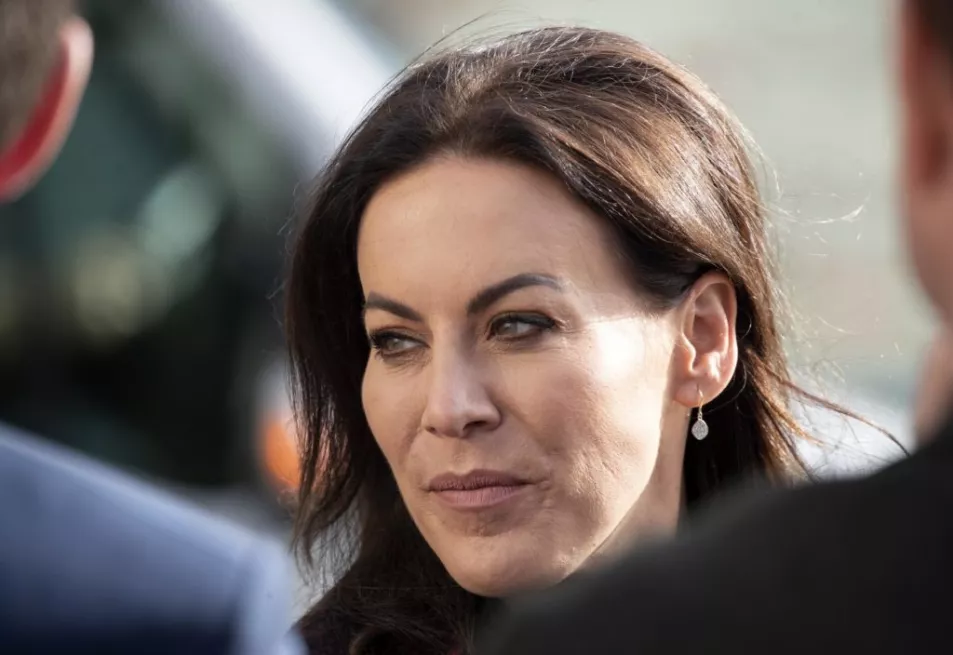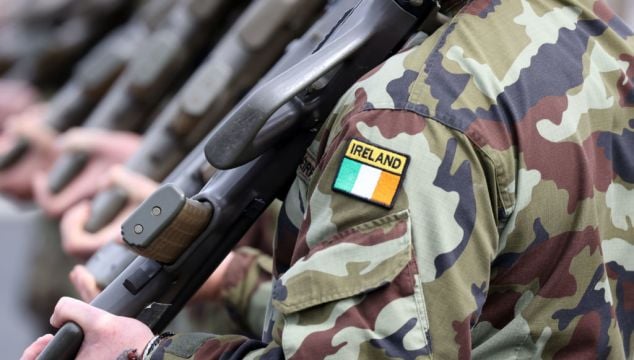A Minister has expressed concern over the number of historical convictions for sexual assault within the Defence Forces.
Last week, Defence Forces Chief of Staff Lieutenant General Seán Clancy informed Taoiseach Simon Harris and Tánaiste and Minister for Defence Micheál Martin that there were 68 Defence Forces members who had been recently convicted of crimes or were before the courts charged with criminal offences.
The cases involve a range of offences “including public order, drink-driving, drugs offences, physical assault and sexual offences”, according to a spokesman for the Tánaiste.
The revelation comes after the conviction of Private Cathal Crotty for assaulting Natasha O'Brien in 2022. Crotty was given a suspended sentence for the attack last month, after pleading guilty.
Jennifer Carroll MacNeill, the Minister of State for Defence, said she did not want a situation where somebody convicted of a serious offence in the past had “since been promoted and that the Defence Forces didn't react at that time”.
Ms Carroll MacNeill told RTÉ radio’s Today with Claire Byrne that the Defence Forces “would and should” be able to provide that information “very clearly, very accurately, and in a very timely way to the government.”
While a senior counsel had been appointed to investigate “live” cases and the way in which they could be managed, the Minister of State said it was important to have information on historical cases.

It was important to clarify the situation, she said, otherwise confidence within the Defence Forces could be undermined.
“Those people work incredibly hard and we are so proud of them. So if there is any element that undermines that, that needs to be found and weeded out so that everybody else in the Defence Forces can have the pride that they so richly deserve to be in our Defence Forces.
“The Defence Forces, as mentioned in the Constitution, it is a special and exalted place. It's like the judiciary. It's like the police. These are the institutions ... that have authority from the State to exert force, to carry weapons, to wear a uniform. They are in a special and different and exalted place within our society, within our polity. And so we must be able to absolutely, confidently say that they do not have an element like that, that we know that that has not been.”
Ms Carroll MacNeill said a “serious cultural and ethos” change needed to happen within the Defence Forces so that it could become a modern, professional force. “A place that's exciting to work, that's valuable to work, that people want to come. And this is important for our recruitment because we have got to recruit more people.”
“That's what I want to make sure happens. And that is legislative change partly, but it's values and ethos and respect and dignity and listening in as large parts of it in general terms.”

When asked why she thought more women were waiving their right to anonymity in sexual abuse cases, Ms Carroll MacNeill responded: “Women are completely sick and tired of being subjected to sexual and gender-based violence.
“How many times have women been shouting about the fact that it's just not acceptable to commit gender-based violence, and that women have to go through a court process and get an outcome before they can feel that they can talk about it, that they don't have to hide in their communities from some attacker who's in a GAA club or some attacker, he's in a rugby club, that they can have the confidence to say, hold on a second, this is a problem.
“This has been a problem for this generation, the previous generation and the generation before that. And we keep talking about it and talking about it, but you have to stand up and say, absolutely not, and absolutely not in our Defence Forces, absolutely not in our gardaí, and absolutely not anywhere else either.
“Zero tolerance means that. The Taoiseach has been so strong about this. Helen McEntee has been so strong about this. It shouldn't have to require women going through a court system and being brave enough to have to come out and call for these changes. If Natasha O'Brien hadn't made the stance that she did, if she'd just gone home, would there be this reaction? Would we know about it in the same way? All of these events should never have happened, and we have to be really honest about that.”







